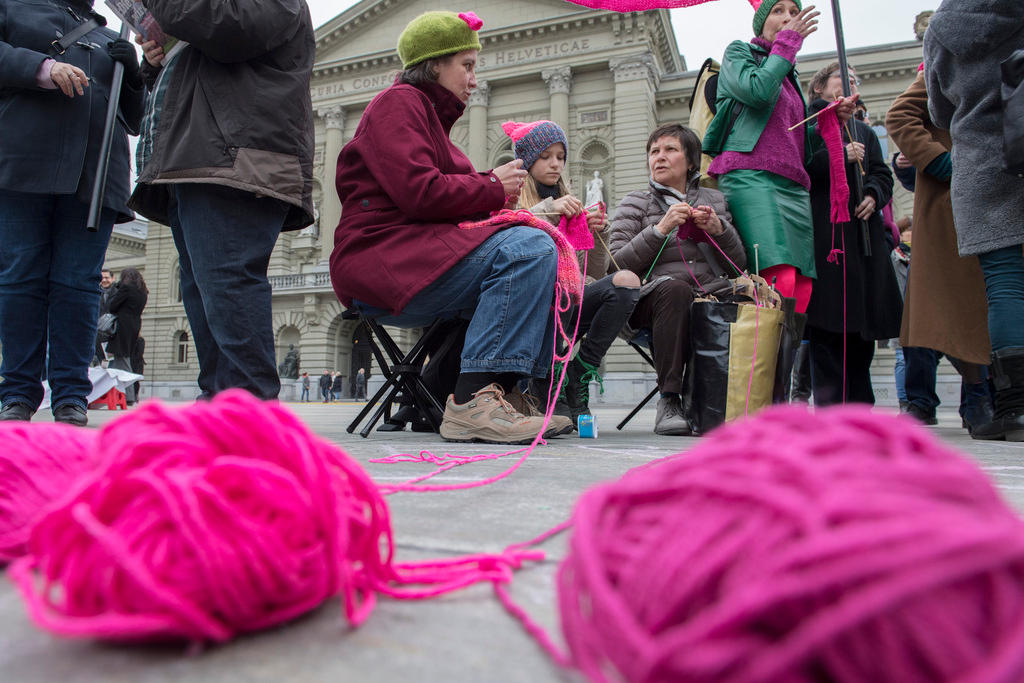An expat’s 10-step guide to political engagement
Moving abroad as an American is no reason to abstain from exercising your democratic rights at home, argues Alexandra Dufresne. In the following essay, she explains how to remain active.
It is a strange time to be an American abroad.
Perhaps you know the feeling. Before your first cup of coffee, you debate whether to check the news to see what happened while you were sleeping. You try to resist, as something about your news obsession feels voyeuristic, undignified. But you check anyway.
You make rules with your friends about not discussing American politics at dinner, or in front of the children. But someone always brings it up anyway – like sticking a finger in a wound – and when they do, you feel both sick and relieved.
You feel overwhelmed and powerless. You are torn between focusing on what is happening in America and retreating into the comfort of being far away. Yet you know in your gut that retreat is a privilege whose comfort is illusory.
If you feel this way, what can you do?
1. Choose between breadth and depth
If you try to engage politically in every important policy issue that crosses your news feed, you will become paralyzed. From the start, you should decide whether you want to take small actions on a range of issues or deep, sustained action on one issue.
2. Recognize your power
Adult US citizens living abroad enjoy more political power than many people who live in America. Specifically, we have more power than those who do not have the right to vote and who, as a result, are at greatest risk in a representative democracy: children, immigrants, refugees and some people in prison. Unless your last residence was in D.C. or a US territory, you maintain the right to vote in all federal elections in the district of your last US place of residence.

3. Call your Members of Congress and Congressional Committees
Expats often ask whether Members of Congress actually care about calls from American constituents abroad. The answer is yes. In a representative democracy, Members of Congress do not tolerate your calls out of politeness: they take your calls because you are their boss. It is their job to represent you. If they don’t do a good job, you can fire them by voting them out of office.
Why is calling more effective than writing? Because almost no one likes to use the telephone anymore. Signing a petition or sending an email is easy, which is one reason why these types of communication are less effective. The good news is that if you are an expat, you might have experience doing something far more intimidating: calling for a dental appointment in a foreign language!
So put the numbers for both the D.C. and the local offices of your Members of Congress into the ‘contacts’ on your phone. Sign up for action alerts and sample scripts from advocacy organizations. Do not worry about long distance charges and time differences. Your call will be less than one minute – I complete mine between tram stops – and if you are calling at an odd time, you can leave a voicemail. In the unlikely event that you can never reach a staffer or the voicemail of your Member of Congress is always full, consider using free internet software to send your comments via fax.
4. Support reliable news organizations
If a free press is important to you, then make sure to take the time to pay for a subscription to several high-quality newspapers or radio stations.
5. Organize and harness the power of peer pressure
Recently, I met a group of strangers to discuss ways to become more politically involved from Switzerland. I didn’t want to go, but I did anyway, because a friend asked me. The meeting was fantastic.
I dislike calling Members of Congress. But I have a Facebook friend with a young child who makes several calls each day while her toddler naps. I call because she does. It is a tiny thing, but this is how social movements are born and grow: through hundreds of thousands of tiny gestures. Americans abroad are in a lucky position because – through our tell-tale friendliness – we can build connections with both expats from many countries and with local citizens.
6. Encourage others to donate generously through your example
It might be wearing on you that you can’t go back to America right now and jump in the trenches. But that doesn’t mean you can’t send care packages and wool socks to your brave colleagues back home. The single best way to support them is to give as much money as you can and to encourage others – by your example – to do so as well. With your donation, you can also send chocolate!
7. Support promising candidates for 2018 midterm elections
Only a small percentage of Americans living abroad vote in midterm elections. As Americans overseas, we need to work to make not-voting-when-abroad as socially taboo as yelling on the tram or doing the laundry on Sunday. Search the track record of your Members of Congress, follow the midterm races carefully, consider donating to promising candidates, register to vote and request your absentee ballot, and ask every American you meet abroad whether you can help them navigate voting logistics.
8. Share your perspective and creativity
One of the great joys of being an American abroad is seeing things about one’s own country from a new perspective. Policy choices that once were invisible suddenly jump into view. You can support movements for political change in the US by sharing the best and worst of what you have seen in your new country, as well as the perspectives you have learned from talking with non-Americans abroad. This inside-outside perspective can also provide more opportunities for creativity and humor than you would otherwise have had. These gifts are precious: use them.

More
Thousands of protesters march through Geneva
9. Protest and Boycott
Well-organized protests and boycotts can also be very effective tools for political change. And in some cases, the fact that you are outside of the US will make it easier for you to garner media attention and support from locals in your new country.
10. Act Anyway
I have heard expats ask, “But how can we be sure that any of these steps will make a difference?” We can’t. It is possible that everything you do will be for naught. But as Americans, we should take political action not because success is certain – or even likely – but because we are duty-bound as members of a living, breathing democracy. So let us call, write, organize, march, donate, boycott, vote, work, and create anyway. Then let us wake up tomorrow, pour ourselves an American-sized cup of coffee, and do it again.
The views expressed in this article are solely those of the author, and do not necessarily reflect those of swissinfo.ch.
swissinfo.ch publishes op-ed articles by contributors writing on a wide range of topics – Swiss issues or those that impact Switzerland. The selection of articles presents a diversity of opinions designed to enrich the debate on the issues discussed.

In compliance with the JTI standards
More: SWI swissinfo.ch certified by the Journalism Trust Initiative





You can find an overview of ongoing debates with our journalists here. Please join us!
If you want to start a conversation about a topic raised in this article or want to report factual errors, email us at english@swissinfo.ch.